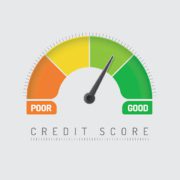Doctor Loans: What You Need to Know
The Doctor Loan has a long history in the United States. First offered to attract new physicians to growing towns in the Wild West, they have evolved over the year. Today, 18,000 new physicians graduate from medical school every year. New physicians can have very specific credit and income profiles that represent a different kind of risk, not reflected in a normal borrower profile.
 What Is a Physician Mortgage Loan?
What Is a Physician Mortgage Loan?
A physician mortgage loan is a low down payment mortgage available to physicians, dentists and other eligible medical professionals. They do not require mortgage insurance and are often considered jumbo mortgages as they allow higher loan balances than conventional and FHA mortgage loans. These doctor home loans have fewer restrictions for borrowers than conventional loans because lenders generally trust doctors to be responsible borrowers.
At Michigan Mortgage, we’ve made it easy for doctors to get a physician mortgage.
The Michigan Mortgage Physician Mortgage Loan Program
That is why Michigan Mortgage has a very specific program designed for that type of individual. Physicians of all types can benefit from our “Doctor Loans.” Features of the program include:
- Available for new residents, new attending (7-10 years out of residency), or to physicians at any stage of their career.
- Flexible down payment options.
- Private mortgage insurance (PMI) is not required.
- Rather than looking for past income, we will consider an employment contract as documentation of future earnings (instead of pay stubs.
- The loan amount can go all the way up to $2 Million.
- Can be used for primary or second home.
- Certain programs allow new Physicians to use gift money for a down payment, for required reserves, or for closing costs.
- Often doesn’t calculate student loans the same way as standard underwriting. Student loans are not counted as part of debt-to-income ratio (DTI).
Other than a doctor loan, physicians are also available for other loan types.
Conventional Mortgage: Often this is the best choice for borrowers. Conventional loans generally offer the most term options and lowest fees, with the lowest rates. Conventional loans do require proof of earnings and a substantial sum of money (20% of mortgage amount) to put down.
FHA Loan: This loan can have higher fees and rates than a conventional mortgage. FHA mortgages can have a smaller required down payment, and a monthly mortgage insurance premium. This loan requires the lender to use the credit report amount of the student loan payment, or if none listed, 1 percent of the outstanding balance unless the borrower can provide documentation that the loan is in deferral. The interest rate could be slightly lower than a Doctor Loan but could wind up costing more because of PMI costs.
VA Loan: This loan requires that you qualify for VA benefits. There is no down payment or mortgage insurance requirement. Rates are similar to FHA rates, but the funding fee is slightly higher.
Ready to get started with a Doctor Loan? Give us a call and we will guide you through the process!
This blog post was written by experts at Mortgage 1 and originally appeared on www.mortgageone.com. Michigan Mortgage is a DBA of Mortgage 1.












Leave a Reply
Want to join the discussion?Feel free to contribute!